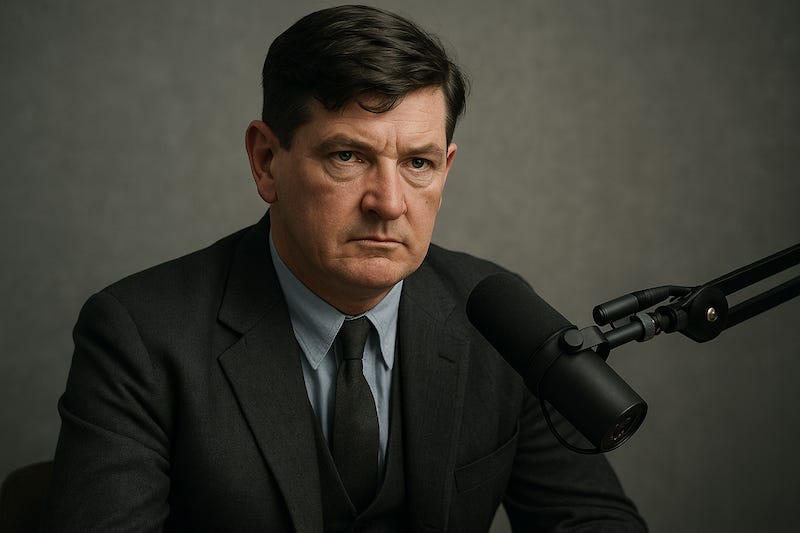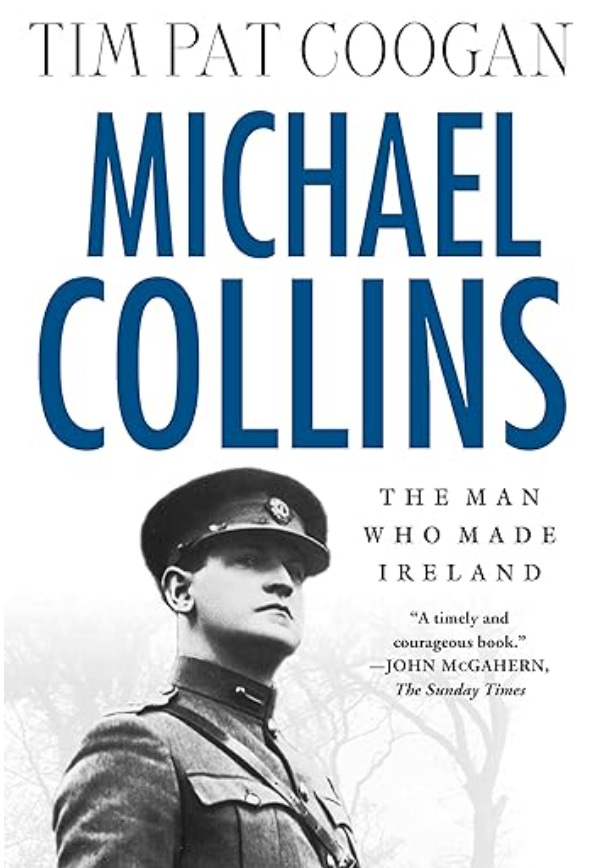Michael Collins – On Rebellion, Betrayal, and the Cost of a Free Ireland
Recorded via ChronoTranscriptor™ – August 22, 2024
[Host Introduction]
Today on ChronoTalks, we speak with Michael Collins, the Irish revolutionary, intelligence chief, and strategist who played a decisive role in the fight for Irish independence.
Born in 1890 in County Cork, Collins rose from post office clerk to leader of the Irish Republican Brotherhood, helped orchestrate the War of Independence, and signed the controversial Anglo-Irish Treaty. Just eight months later, he was assassinated during the Irish Civil War—killed not by foreign enemies, but by former comrades.
Thanks to the ChronoTranscriptor™, we meet Collins in the quiet before the storm. His words are sharp, his memory long—and the Republic, always just out of reach.
[Interview Begins]
Host: Mr. Collins, thank you for joining us.
Michael Collins: I’m surprised you found me. I spent years avoiding being found. Still, I suppose I’ve earned a few words by now.
Host: You’re known as the architect of Irish independence. Was that always your aim?
Michael Collins: My aim was liberty, not legend.
I didn’t set out to be a hero. I wanted Ireland to govern herself, to speak her own language, to bury her dead under her own flag. If that made me dangerous, then so be it.
Host: Your methods were... unconventional. Some call them ruthless.
Michael Collins: Better ruthless than romantic. The British Empire wasn't handing us freedom with a handshake.
We built an intelligence network that could melt through walls. We struck when it counted. The Cairo Gang thought themselves invisible—we showed them otherwise.
People remember the assassinations. They forget the discipline. Every bullet, every order, had purpose. War is messy. Revolution is messier still.
Host: The Treaty you signed in 1921 divided the nation. Some saw it as betrayal.
Michael Collins: I knew it would. I said, "I have signed my own death warrant." And I had.
But that Treaty gave us something we never had before—a stepping stone. Dominion status, yes. A border, yes. But also a parliament in Dublin, a flag raised without fear, and the chance to fight another day as a nation, not a colony.
Those who rejected it fought for the dream. I fought for what could be built with bare hands.
Host: The Civil War that followed was devastating. Did you regret the split?
Michael Collins: I regret the blood. Never the belief.
To be shot by a man who once stood beside me… it’s a bitter thing. But I knew what I was choosing. Unity is fragile. Ideals are heavy. And sometimes your closest allies draw their lines in the sand.
Host: If you had lived, what would you have done next?
Michael Collins: I would have built the Republic from the inside out. I wanted roads, schools, dignity. A country where a poor farmer’s son could become something more.
I wasn’t done fighting. I just wanted to start building.
Host: How do you feel being remembered as both hero and traitor?
Michael Collins: History is a quarrel with itself. If they remember me at all, I’ve done my part.
I was neither saint nor devil. I was a soldier. A patriot. A man who loved his country more than he loved being liked.
Host: What would you say to young people today about resistance?
Michael Collins: That rebellion isn't only about bullets. It's about vision. It’s about knowing when to shout and when to build. When to hold your ground—and when to cross the floor to shake hands.
Ask yourself: Is your rage building a home or just burning one down?
[Closing Remarks]
Host: Mr. Collins, thank you—for your fire, your sacrifice, and your honesty.
Michael Collins: Don’t thank me. Finish what we started.
Subscribe to ChronoTalks to keep time talking back.
When Irish nationalist Michael Collins signed the Anglo-Irish Treaty in December 1921, he remarked to Lord Birkenhead that he may have just signed his own death warrant. That grim prediction came true in August 1922, when Collins was ambushed and killed by a fellow Irishman. Yet his vision for an independent Ireland endured far beyond his untimely death. In this definitive biography, Tim Pat Coogan captures the complexity of a man whose fierce idealism was tempered by political pragmatism, and whose brilliance as a strategist helped lay the foundations of modern Ireland. This is the classic portrait of the revolutionary who shaped a nation. More information…




